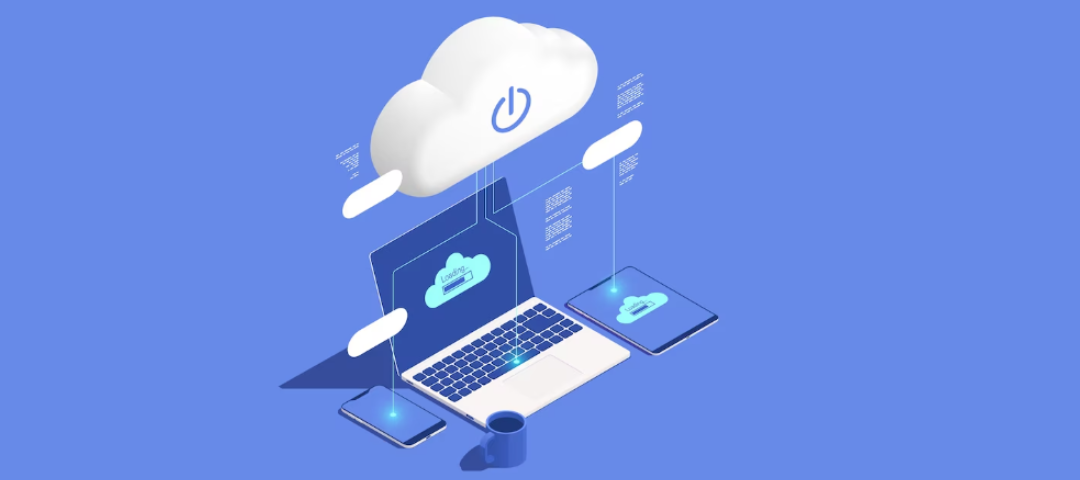
Cloud computing has become a game-changer in the world of mobile app development, enabling developers to build, deploy, and scale apps with greater efficiency. By leveraging cloud technology, companies can deliver flexible, cost-effective solutions that enhance the development process. For businesses, such as an iPhone app development agency, cloud computing is essential for creating modern, dynamic applications that cater to user demands and expectations.
In this blog, we’ll dive deeper into how cloud computing is reshaping mobile app development, especially iPhone apps, the benefits it brings, its challenges, and the future of cloud-based mobile apps.
1. Enhanced Scalability and Flexibility
One of the most significant benefits of cloud computing is its ability to provide seamless scalability and flexibility. In the world of mobile apps, demand can fluctuate based on various factors such as app updates, promotional events, or seasonal spikes. Without cloud infrastructure, handling these sudden surges in traffic could be difficult and costly.
With cloud technology, however, resources can be scaled up or down automatically to meet demand. This means that apps can handle increased traffic loads without experiencing slowdowns or downtime, leading to a smoother user experience. For iPhone app development, the ability to rely on cloud scalability reduces the risk of server overloads, allowing teams to focus on developing and enhancing features.
2. Reduced Development and Maintenance Costs
Building and maintaining physical infrastructure can be expensive, especially for small and medium-sized businesses. Investing in hardware, servers, and data centers requires significant upfront capital. However, with cloud computing, these infrastructure requirements are minimized or even eliminated, as resources are available on a pay-as-you-go basis.
This cost-effective model allows companies to pay only for the resources they use, reducing expenses associated with infrastructure management. Additionally, it frees up development teams to focus more on innovation rather than managing hardware, which is particularly beneficial for iPhone app development projects with tight budgets or startup resources.
3. Efficient Data Storage and Management
Managing large volumes of data is a common challenge in mobile app development, especially as more apps integrate features like real-time updates, user-generated content, and multi-device synchronization. Cloud computing provides a centralized data storage solution, allowing developers to easily manage, store, and access data.
For iPhone apps, this means smoother data synchronization across devices and platforms, ensuring that users have consistent experiences regardless of where they access the app. Cloud technology also enables real-time data processing, which is essential for apps that require immediate updates or data handling, such as financial apps, social media platforms, or multiplayer gaming.
4. Improved Collaboration and Remote Development
Cloud-based development tools and services make it easier for distributed teams to collaborate effectively. Development teams can work together from different locations, accessing shared codebases, project resources, and development tools directly from the cloud. This setup facilitates seamless communication and real-time collaboration, even across time zones.
iPhone app development utilizes remote talent or has multiple teams working on different aspects of a project, cloud computing significantly streamlines the development process. Developers can push updates, fix bugs, and deploy features faster, reducing the time to market and enabling teams to respond swiftly to changes in project requirements.
5. Enhanced Security and Data Protection
Security is a primary concern for any app developer, especially when handling sensitive user data. With cloud computing, developers can rely on the security measures provided by cloud service providers. These providers typically offer advanced security features such as data encryption, multi-factor authentication, intrusion detection, and regular security updates to protect against data breaches and other cyber threats.
For iPhone apps, utilizing cloud-based security services can help ensure that user data is protected from unauthorized access or data loss. Additionally, cloud storage provides automatic backups, making it easier to recover data in the event of a failure or breach, thereby reducing downtime and minimizing disruption.
6. Faster Time to Market
Cloud computing accelerates the development lifecycle by providing developers with pre-built components, development tools, and frameworks. These ready-to-use resources can significantly speed up coding, testing, and deployment, allowing developers to bring their apps to market faster. For an iPhone app development agency, this faster time to market can be a significant competitive advantage.
Moreover, cloud-based continuous integration and continuous deployment (CI/CD) pipelines streamline the testing and deployment process, making it easier to release updates and new features. Automated testing and deployment tools ensure that any changes made to the app are quickly and efficiently rolled out, minimizing the risk of errors reaching the end-user.
7. Seamless Integration with Third-Party Services
Many iPhone apps rely on third-party services for added functionality, such as payment gateways, social media integration, or location-based services. Cloud computing makes it easier to integrate these third-party services through APIs and cloud-based connectors. This seamless integration allows developers to enhance their app’s capabilities without the need for extensive manual coding.
Additionally, cloud platforms often come with built-in support for popular services like AWS Lambda, Firebase, and Azure Functions, allowing developers to build more complex workflows that leverage multiple cloud-based services.
8. Supporting Emerging Technologies
Cloud computing also plays a crucial role in enabling emerging technologies such as artificial intelligence (AI), machine learning, and the Internet of Things (IoT). These technologies often require significant computational power and data storage capabilities, which can be challenging to achieve with traditional on-premise infrastructure.
For example, an iPhone app development agency can leverage cloud-based AI services to incorporate features like image recognition, natural language processing, or predictive analytics into their apps. This integration makes it possible to create more intelligent, context-aware applications that deliver enhanced user experiences.
Conclusion
Cloud computing has become an essential part of modern mobile app development, offering a host of benefits from scalability to enhanced security. For an iPhone app development agency, leveraging cloud technology means creating more dynamic, flexible, and cost-effective solutions that meet the demands of today’s users. As cloud computing continues to evolve, its role in shaping the future of iPhone apps will only grow, driving innovation and enabling developers to deliver better apps faster.
FAQs
- How does cloud computing benefit mobile app development?
Cloud computing provides benefits such as scalability, cost savings, and efficient data management. It enables developers to handle fluctuating user demand seamlessly, reduces infrastructure costs, and improves the management of large data sets for mobile apps. - Is cloud computing secure for mobile app development?
Yes, cloud computing is considered secure for mobile app development. Reputable cloud service providers offer robust security measures, including encryption, access control, and regular updates, to protect user data and ensure compliance with security standards. - Can cloud computing reduce development costs for an iPhone app development agency?
Absolutely. By eliminating the need for physical servers and infrastructure, cloud computing allows developers to work with a pay-as-you-go model. This reduces upfront costs and provides a more cost-effective solution for building and maintaining apps. - How does cloud computing support collaboration in mobile app development?
Cloud-based tools enable remote teams to collaborate more efficiently by providing access to shared resources, development environments, and real-time communication. This leads to improved productivity and faster development cycles for app development projects. - What role does cloud computing play in data storage for iPhone apps?
Cloud computing provides centralized and secure data storage, making it easier to manage, synchronize, and access data across devices. This ensures that app data is always up-to-date and consistent, leading to a better user experience.



